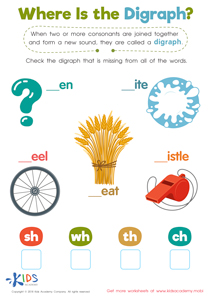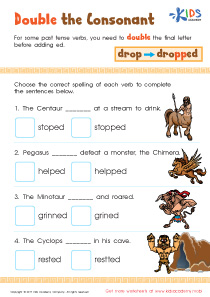Normal Beginning Consonants Worksheets for Ages 3-6
9 filtered results
-
From - To
Help your little learner master the basics of reading with our "Normal Beginning Consonants Worksheets for Ages 3-6". These engaging and fun sheets are expertly designed to introduce preschool and kindergarten children to the world of consonant sounds. Through vibrant pictures and interactive exercises, kids will practice identifying and writing beginning consonants, fostering essential phonics and early literacy skills. Ideal for both classroom and at-home learning, our worksheets offer a playful and effective way to boost your child’s confidence in reading. Start building a strong foundation in phonics with our expertly crafted resources!
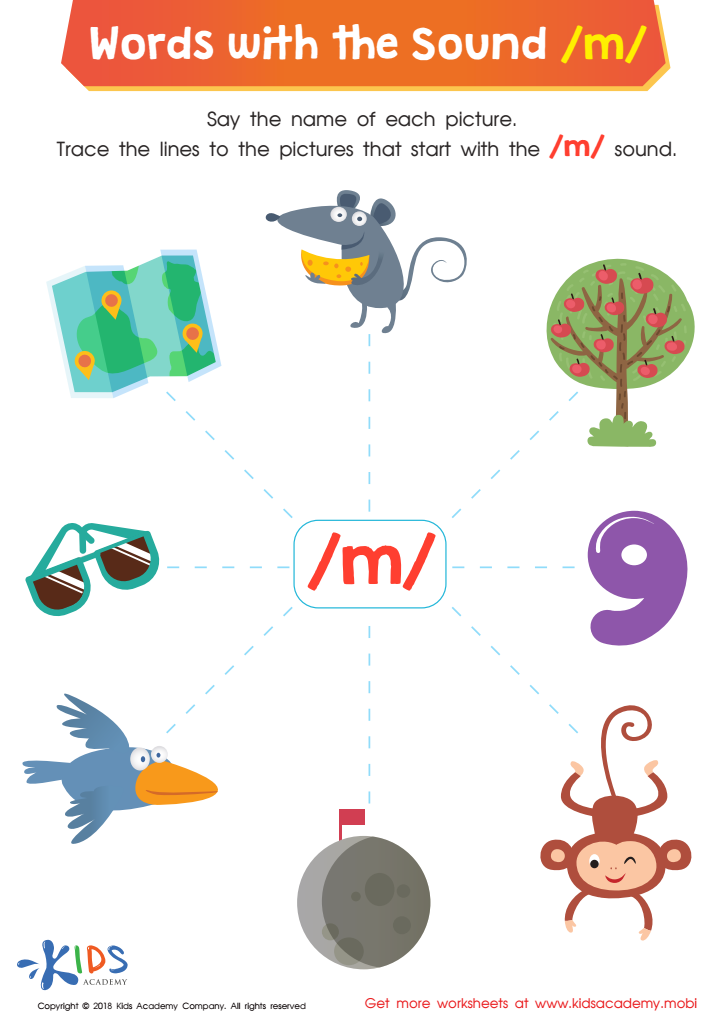

Words with Sound M Reading Worksheet
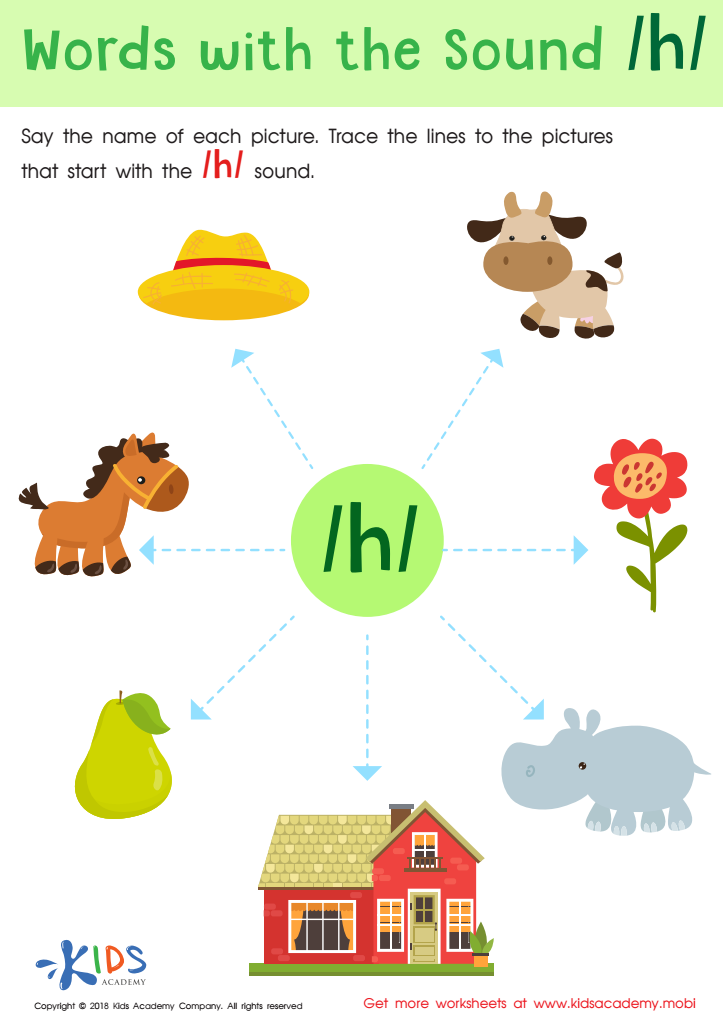

Words with sound h Reading Worksheet


Words with sound p Reading Worksheet


Words with sound f Reading Worksheet


Twin Onset Worksheet


Vowel and Consonant Sounds: Assessment Worksheet
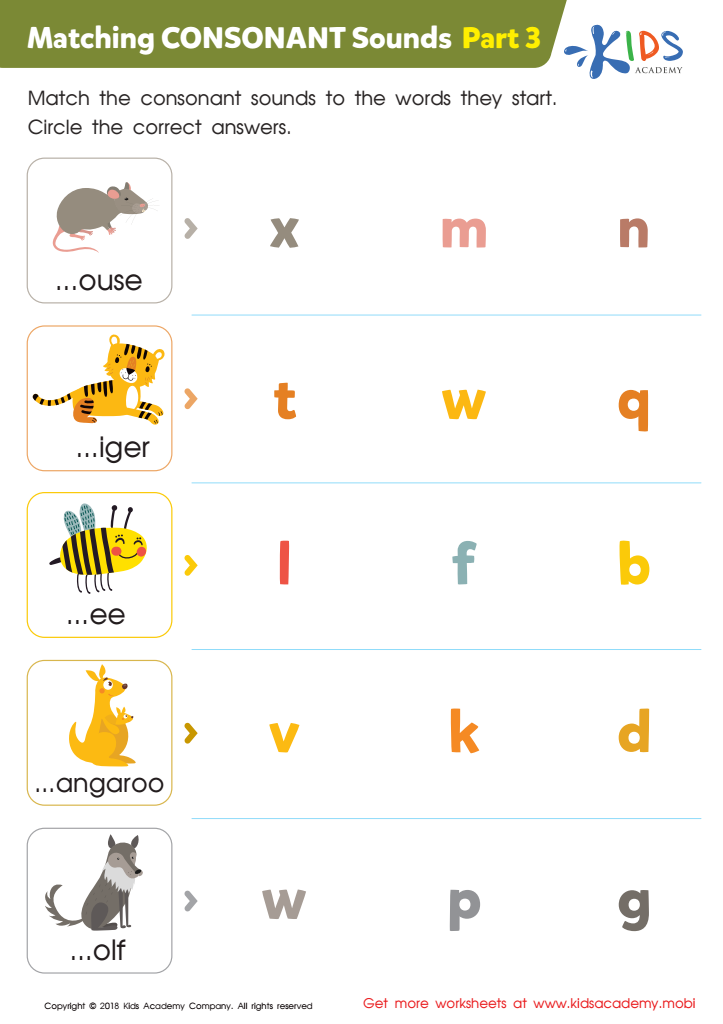

Matching Consonant Sounds: Part 3 Worksheet
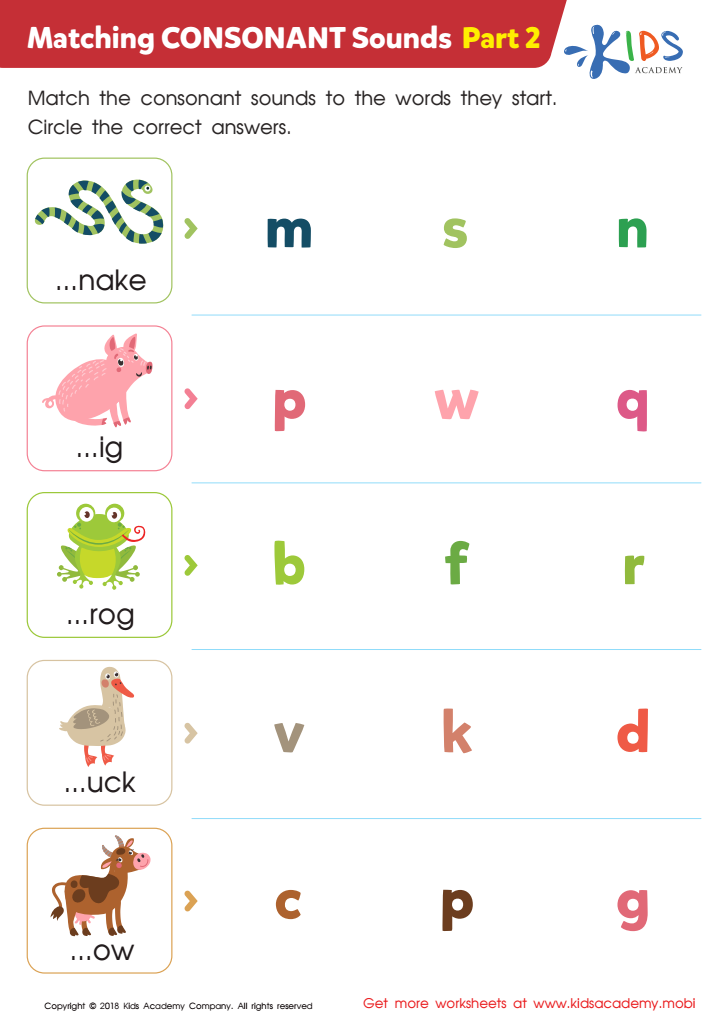

Matching Consonant Sounds: Part 2 Worksheet
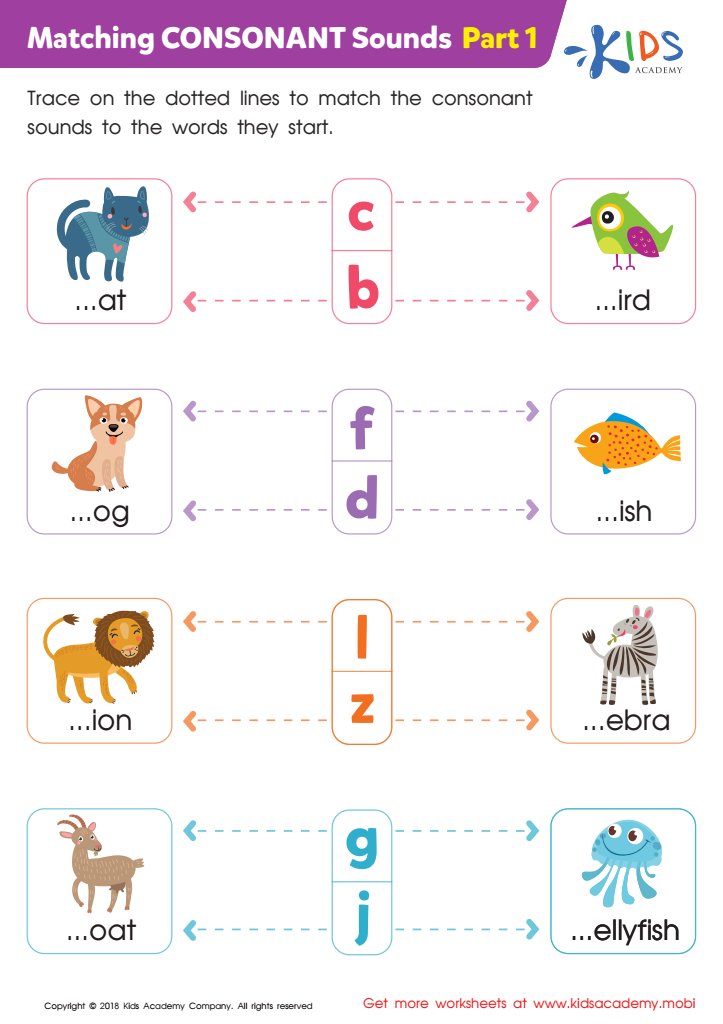

Matching Consonant Sounds: Part 1 Worksheet
Caring about normal beginning consonants for children ages 3-6 is essential due to its foundational role in their language and literacy development. At this age, young minds are particularly receptive to learning new sounds and forming the basic blocks that underlie effective communication. Recognizing and pronouncing beginning consonants correctly aids in expanding vocabulary, improving phonemic awareness, and developing the ability to distinguish between similar-sounding words. This competency is crucial for later reading proficiency.
Furthermore, early mastery of beginning consonants helps streamline the process of learning to read and write. It booses children's confidence and motivation to engage more deeply with books and other written materials. Teachers and parents who prioritize consonant sounds foster an encouraging, supportive environment with targeted activities like reading aloud, interactive games, and practice exercises, promoting phonics skills.
Such early interventions also mitigate the risk of future learning difficulties. If a child struggles with beginning consonants and it’s identified early, supplemental support can be provided timely to bridge gaps. Ensuring children have a robust grasp of consonants by age 6 sets a strong stage for more complex language skills, strengthening their academic pathway and fostering lifelong love for learning.

 Assign to the classroom
Assign to the classroom
